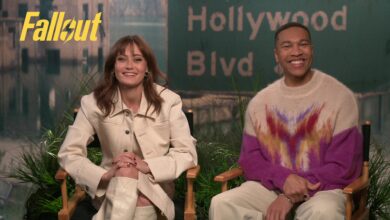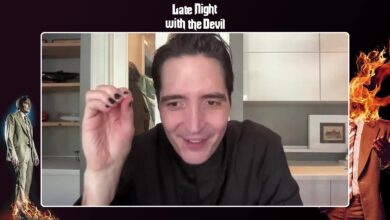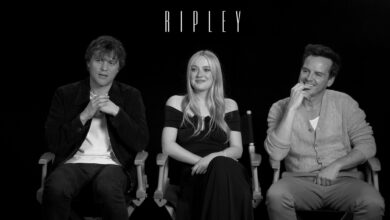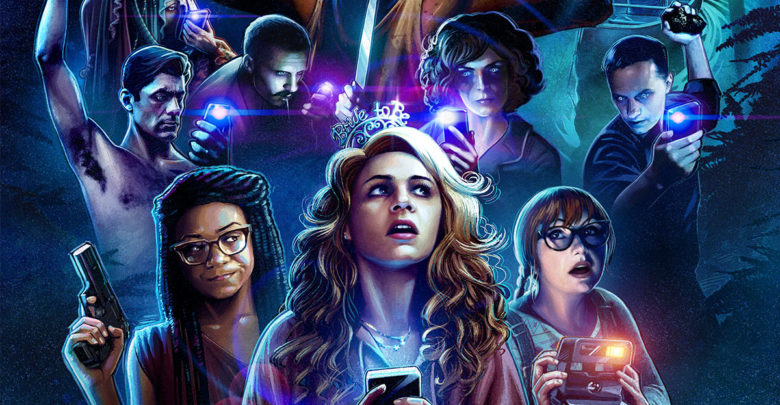
Technology and horror are an interesting mix that can easily hurt or help each other, depending on how a filmmaker decides to utilize them. Just looking back at the deluge of Japanese remakes from the early 2000s, featuring evil cell phones, VHS tapes, and cameras provides an excellent case study of this relationship. As time goes on, that mixing of concepts has evolved and become more refined.
Camp Wedding is fascinating because the filmmakers have stumbled upon a legitimately fun and unique concept that perfectly encapsulates our obsession with technology and social media. Sadly, it doesn’t stick the landing.
The film follows Mia and her friends as they arrive at Camp Pocumlick to prepare for her impending nuptials. She’s intent on the perfect day, complete with all sorts of activities and a camera crew from a wedding blog, and proceeds to bridezilla her way though the process. Things soon start to go awry as supernatural forces begin picking off the bridal party one by one, and the potential for hilarity ensues.
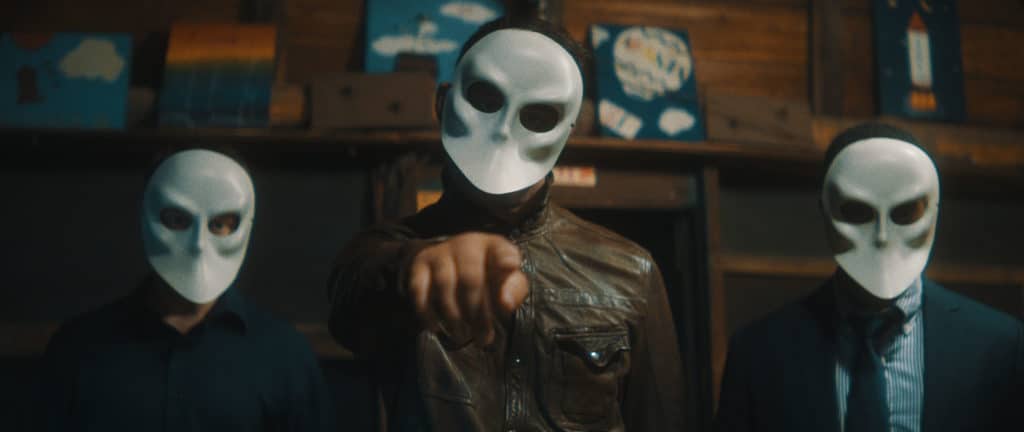
At its best, Camp Wedding feels like a Grady Hendrix novel. It ties nostalgia and horror concepts together in a way that feels fresh and unique, without falling into the traps of gimmickry. The antagonist, once it’s fully revealed, is a bucket of fun that pokes and prods at our own narcissism, and almost saves the production for me. Technology’s place in the narrative, which at first seems lame and self-serving, perfectly ties in with the slasher adjacent narrative.
Unfortunately, I was left disappointed by Camp Wedding. Self-sabotage is nothing new for indie cinema, often the result of not enough planning in pre-production and a lack of attention to image fidelity, sound design, or other technical aspects. Here, the cinematography varies but maintains a palatable, semi-professional sheen and all of the other technical elements mostly go by without any distracting issues. Looking at what the crew was working with in behind-the-scenes stills, the physical look is impressive, created with a mix of anamorphic filters on DSLR-style cameras and film grain added in post.
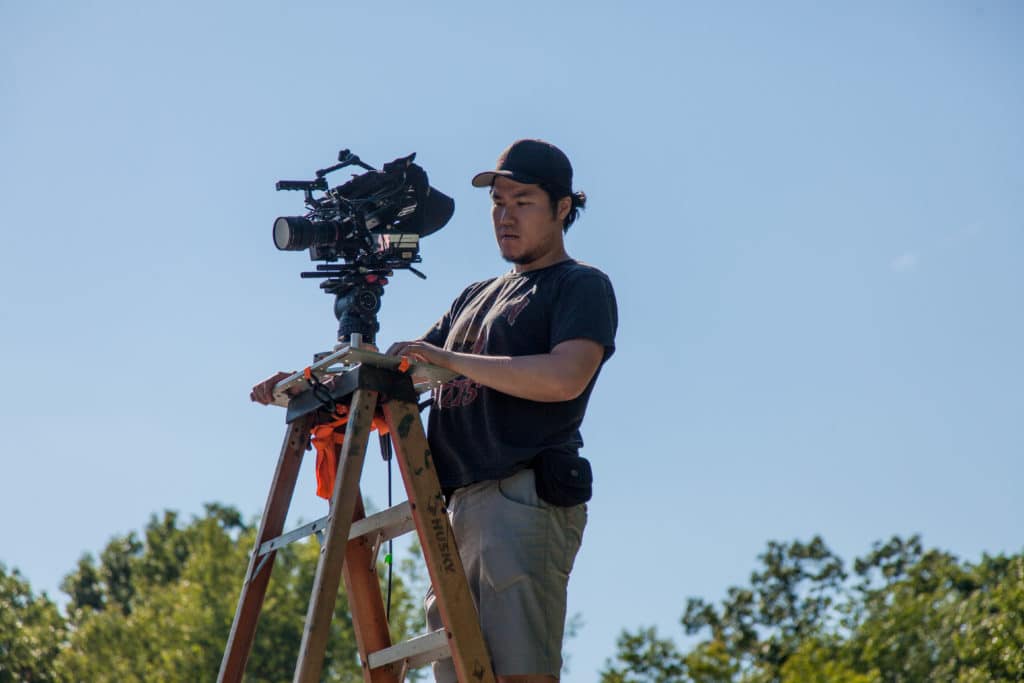
Beyond one brief use of CGI fire that sticks out like a sore thumb, everything looks nice. Rarely do we get much more, but that’s still better than 90% of direct-to-video movies like this. From a technical perspective, we have a winner that goes out of its way to make the most of its budget. From a character and story perspective, though…
Look, if you’re going to make a movie with a silly premise that inherently deals with unlikable characters, you either need to take that silly premise very seriously or go off-the-wall bonkers with it. Writer/director Greg Emetaz doesn’t seem to know which tonal direction to go, and winds up stuck in the middle of nowhere. Most of his characters are incredibly unlikable and in the rare instance where they’re not, they’re boring. Our main group, especially Mia (Kelley Gates) and her old acquaintance turned awkward friend Eileen (Wendy Jung), made me yearn to see some brutal deaths. Considering the initial premise and going in totally blind, this seemed like a likely scenario.
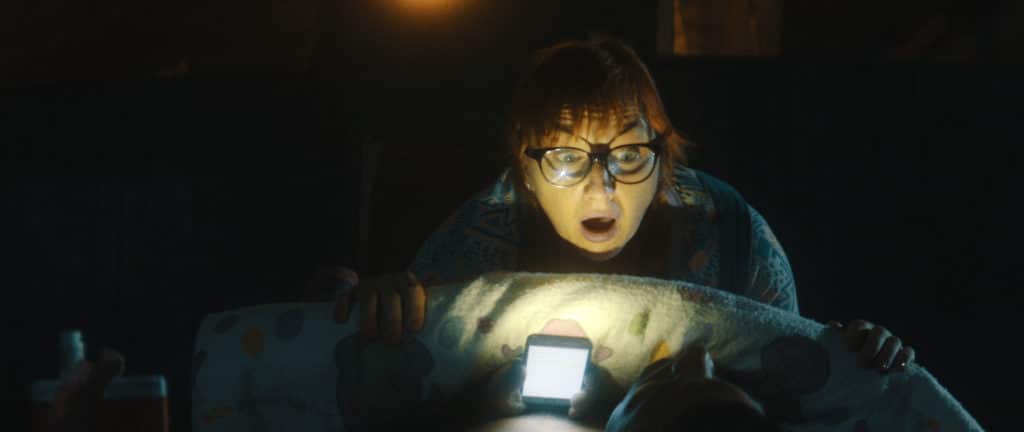
The actors rarely seem to actually take the concept seriously, either. Like the technical side, they’re all professional and seem to be putting in an effort, but they’re in different movies. Jung specifically seems to be in the slapstick realm, overplaying her nerdy hanger-on to an aggravating extent. Sean Hankinson’s man of honor Gore comes close to matching the movie he’s in, but isn’t given quite enough to do. Cadden Jones as frantic, gluten-free knife-wielding mother Flynn gets some fun moments and more time to perfect them, but is overwhelmed by Gates and Jung.
Frustratingly, these problem characters finesse their way into likable molds by the final moments, once the story picks up and our villain is revealed. On the page, this makes sense. They all get arcs of varying quality, and just the fact that they get to change over the course of 90 minutes is a nice surprise. By not giving us one truly enjoyable protagonist though, the lead up is too much of a hike to be worthwhile. Entering the third act, we’re just too exhausted to forgive the lead up.
To double down on the tonal issues, Camp Wedding isn’t actually a horror movie. If you come into this expecting gory murders or hair-raising scares, you’re out of luck. Instead, what we have is a supernatural comedy passing itself off as a horror film to hook its audience, before sweeping the leg and presenting us with what it hopes to be a shockingly fun twist. As already noted, it is a fun twist, but it’s also too little too late. By the time the real genre becomes obvious and things get interesting, boredom and frustration has soiled the experience.
All of my negativity aside, there is probably an audience for Camp Wedding. While the comedy mostly didn’t work for me, if you like your characters catty and reality TV levels of likable, perhaps they won’t sink the ship during your watch. Don’t like horror movies as much, but prefer some ladled-on social commentary and jokes about bridezillas, hipster getaways, and gay romance? You may be prime audience material for Camp Wedding, in which case check it out on iTunes today.
Review
Rating
RN Review of Camp Wedding
A great core concept can't save Camp Wedding from annoying characters and tonal inconsistencies, but it does have enough merits to make it worth a watch.
